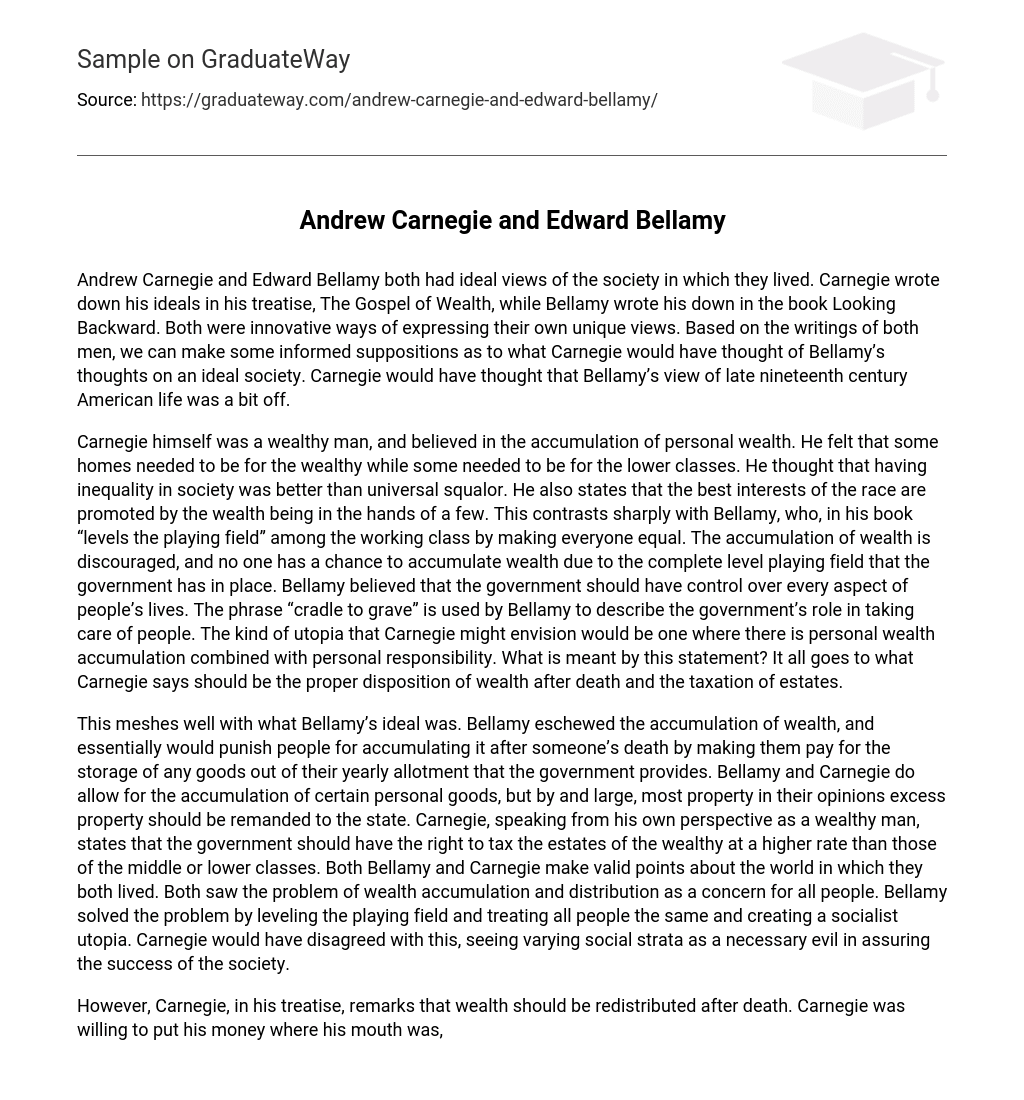Andrew Carnegie and Edward Bellamy both had ideal views of the society in which they lived. Carnegie wrote down his ideals in his treatise, The Gospel of Wealth, while Bellamy wrote his down in the book Looking Backward. Both were innovative ways of expressing their own unique views. Based on the writings of both men, we can make some informed suppositions as to what Carnegie would have thought of Bellamy’s thoughts on an ideal society. Carnegie would have thought that Bellamy’s view of late nineteenth century American life was a bit off.
Carnegie himself was a wealthy man, and believed in the accumulation of personal wealth. He felt that some homes needed to be for the wealthy while some needed to be for the lower classes. He thought that having inequality in society was better than universal squalor. He also states that the best interests of the race are promoted by the wealth being in the hands of a few. This contrasts sharply with Bellamy, who, in his book “levels the playing field” among the working class by making everyone equal. The accumulation of wealth is discouraged, and no one has a chance to accumulate wealth due to the complete level playing field that the government has in place. Bellamy believed that the government should have control over every aspect of people’s lives. The phrase “cradle to grave” is used by Bellamy to describe the government’s role in taking care of people. The kind of utopia that Carnegie might envision would be one where there is personal wealth accumulation combined with personal responsibility. What is meant by this statement? It all goes to what Carnegie says should be the proper disposition of wealth after death and the taxation of estates.
This meshes well with what Bellamy’s ideal was. Bellamy eschewed the accumulation of wealth, and essentially would punish people for accumulating it after someone’s death by making them pay for the storage of any goods out of their yearly allotment that the government provides. Bellamy and Carnegie do allow for the accumulation of certain personal goods, but by and large, most property in their opinions excess property should be remanded to the state. Carnegie, speaking from his own perspective as a wealthy man, states that the government should have the right to tax the estates of the wealthy at a higher rate than those of the middle or lower classes. Both Bellamy and Carnegie make valid points about the world in which they both lived. Both saw the problem of wealth accumulation and distribution as a concern for all people. Bellamy solved the problem by leveling the playing field and treating all people the same and creating a socialist utopia. Carnegie would have disagreed with this, seeing varying social strata as a necessary evil in assuring the success of the society.
However, Carnegie, in his treatise, remarks that wealth should be redistributed after death. Carnegie was willing to put his money where his mouth was, so to speak, by donating almost all of his considerable wealth to society for its betterment. He gave most of his money to a charitable foundation, which used the money to build libraries around the New York area and around the country. Bellamy remanded the property of his hypothetical dead to the government. We can take the ideals of both men and work with them and use them to create our own utopia.





